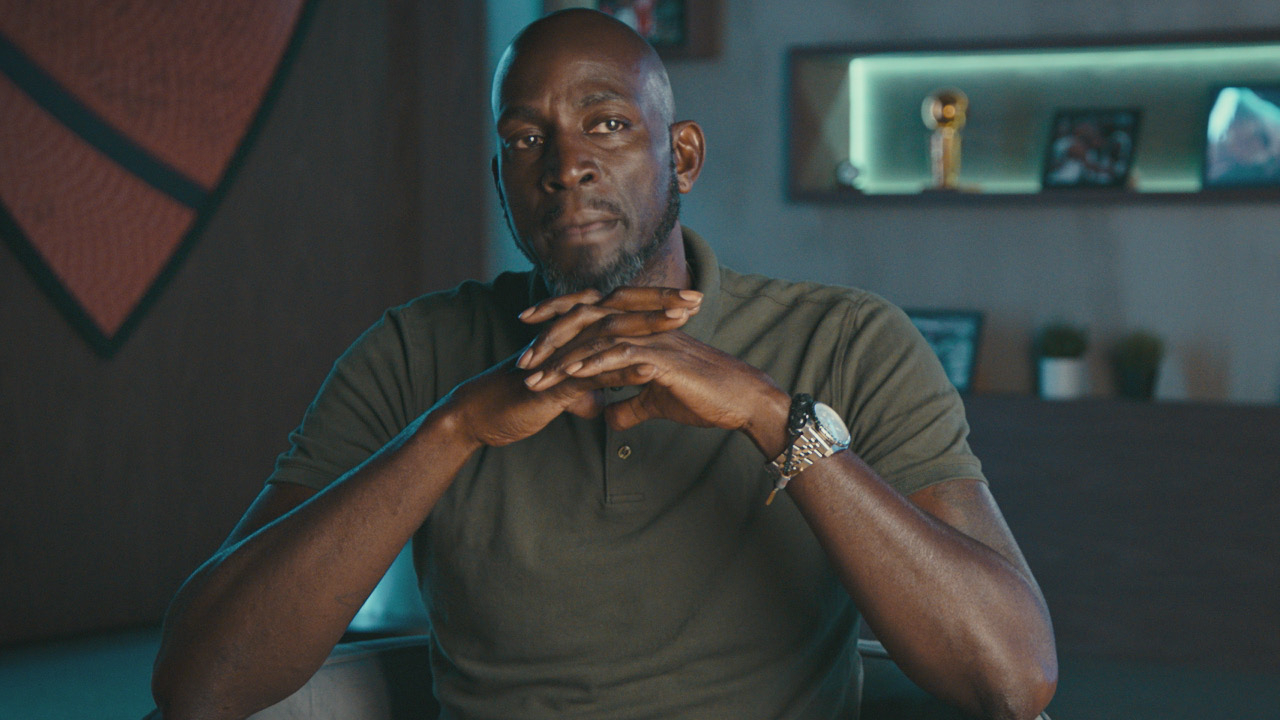32 Phrases Seinfeld Introduced To The English Language
The classic show added to our modern language in special ways.
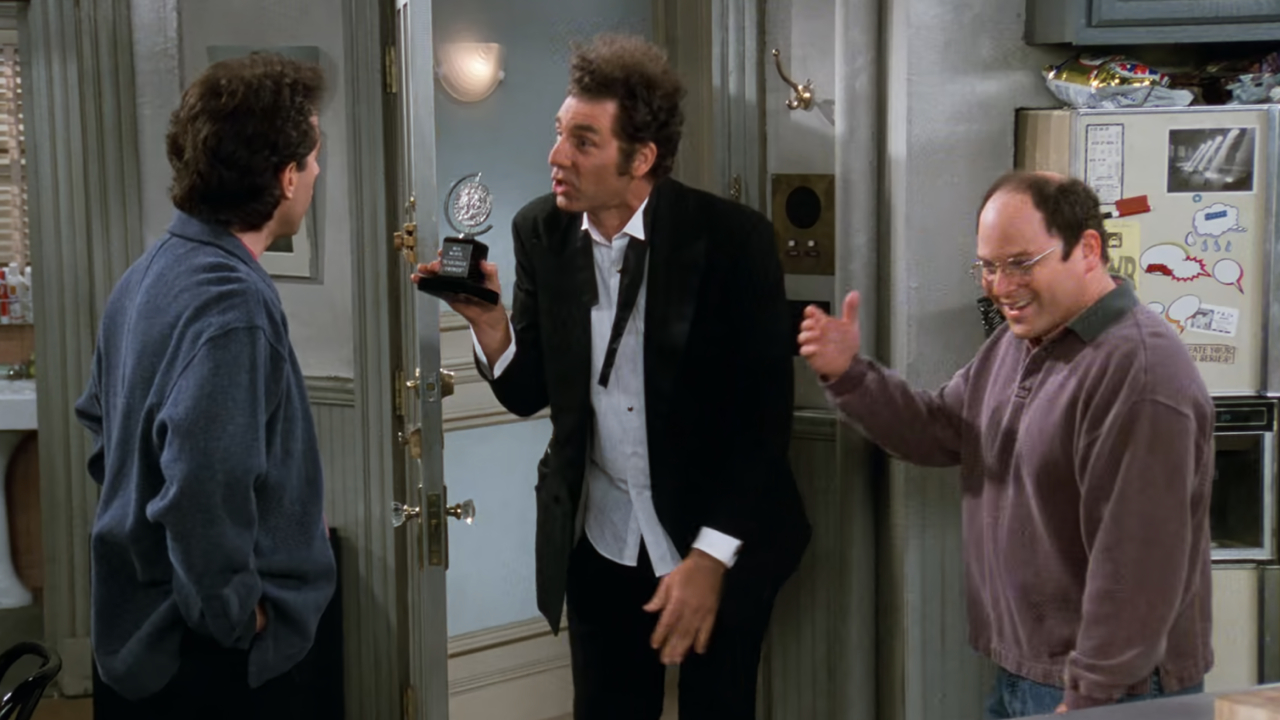
Seinfeld is known for a great many things. It’s incredibly funny, for starters. It also has phenomenally built episodes, with A and B plots regularly colliding to hilarious results. One of its most magical aspects, however, is its special language and the characters regularly coining unique phrases. Each season added to the pop culture lexicon that we still use today, more than 30 years after the show’s debut.
We’ve put together this feature to celebrate that special part of Seinfeld’s existence, and hopefully it will deliver some reminiscence-based chuckles along the way.
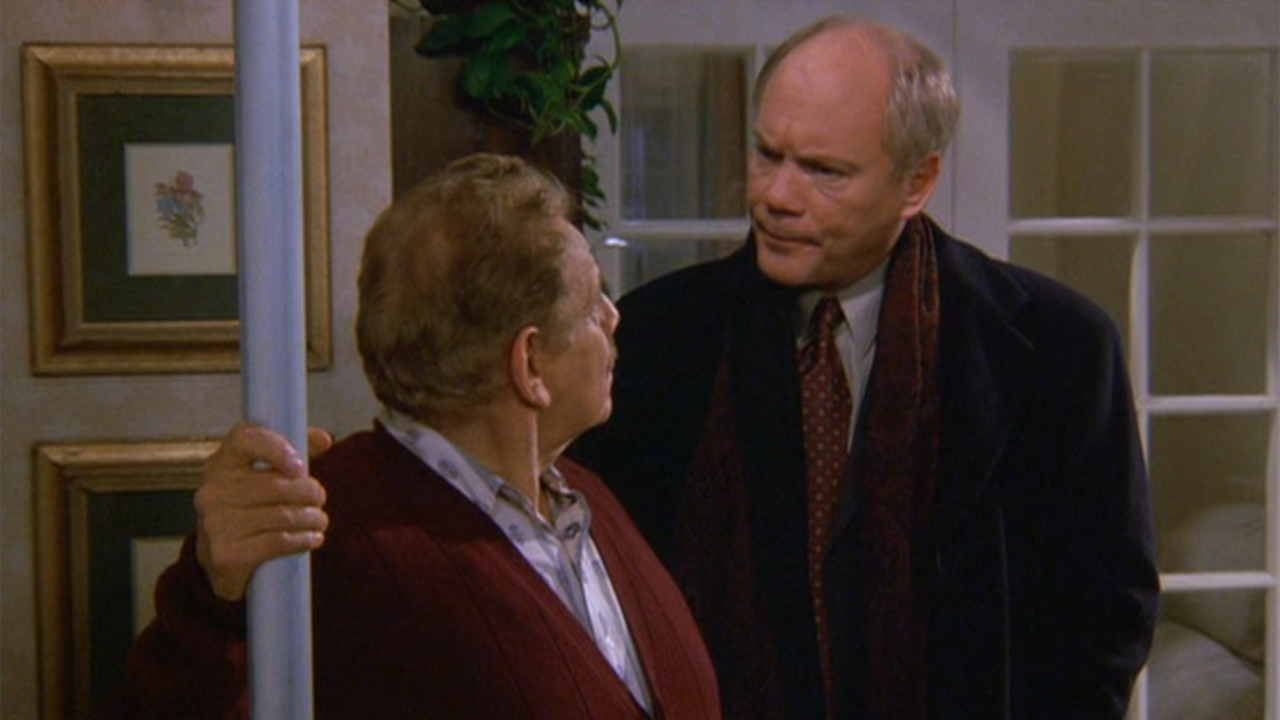
Festivus
Are you sick of the consumerism that drives the holiday season? Perhaps you should try celebrating Festivus – created by the one and only Frank Costanza. On December 23, you can observe the special day by putting an aluminum pole up in your living room, ending a communal dinner by telling all of the people in your life about all the ways they anger you (a.k.a. the Airing Of Grievances), and concluding the evening with a wrestling match (a.k.a. The Feats Of Strength). Expect one or two Festivus miracles.
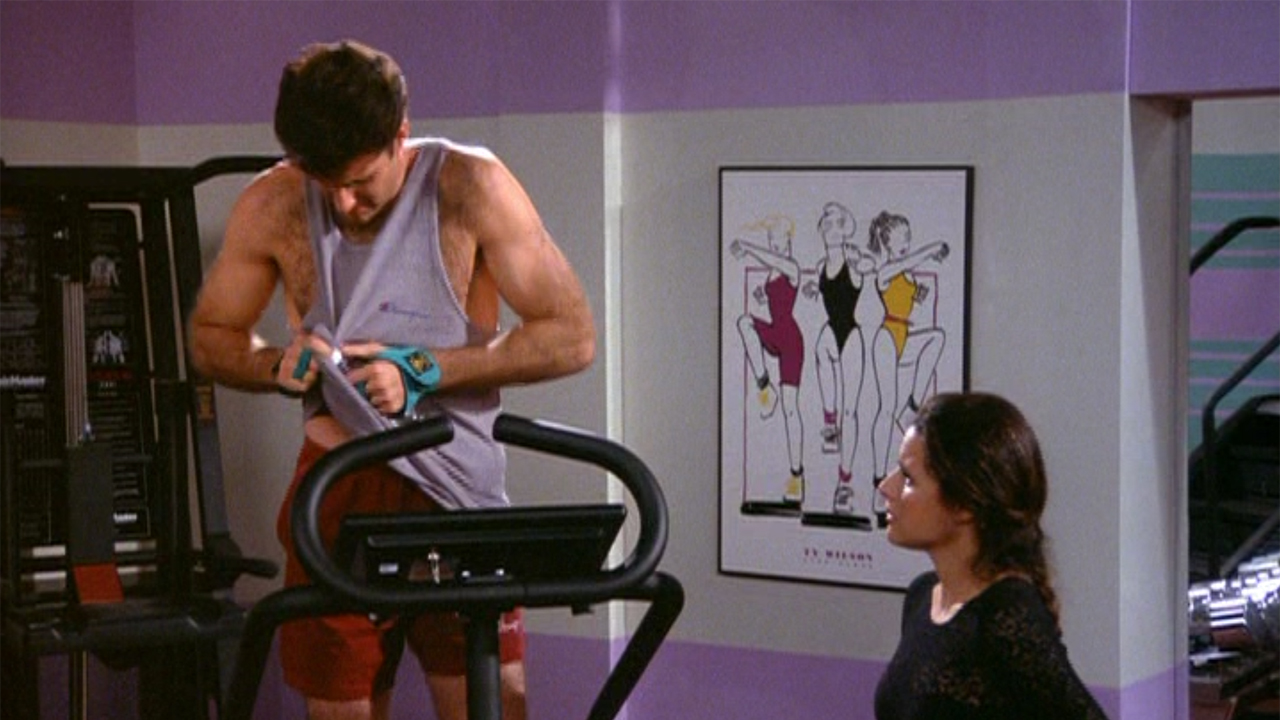
Bottle Wipe
There are many ways that actions reflect a relationship, and a Bottle Wipe is a good one. If you provide a bottle of water to a person to whom you are attracted, and they wipe the nozzle before taking a sip, it’s a clear indication that the attraction is not mutual. After all, if the person wanted you, they’d want your germs. This behavior is so significant that it even supersedes an open-lip kiss.
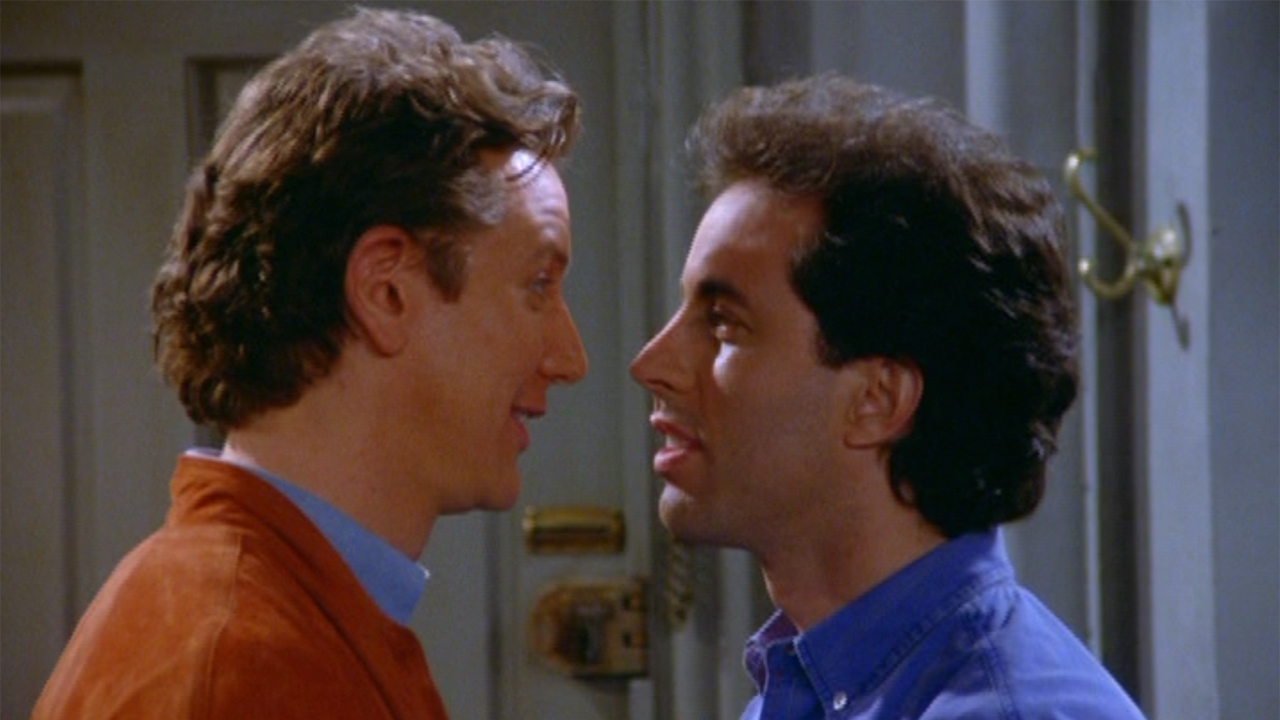
Close Talker
Have you ever been in a conversation with a person and find that they are standing just a bit too close to you? These individuals disrespectful of personal space can easily be summed up as Close Talkers. The prime example on Seinfeld, of course, is Elaine’s boyfriend Aaron (played by Judge Reinhold) in “The Raincoats.” His obsessiveness with showing Jerry’s parents a good time in New York is weird enough, but the way he gets in people’s faces during a chat is next level.
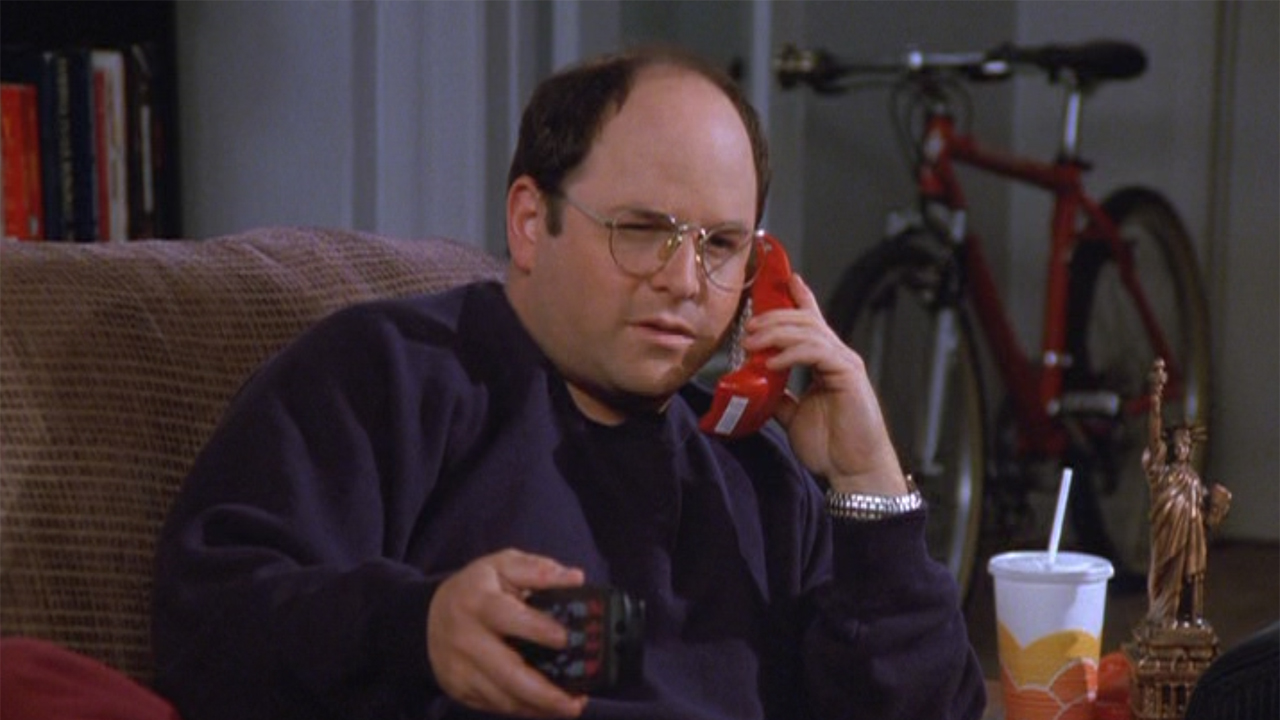
Decompressing
When you go from a strenuous activity to a time of freedom, it’s best – in the wisdom of George Costanza – to not act quickly or rashly. Instead, the best course of action is a period of decompressing, which is a pretty fancy way of saying “doing nothing.” It should be noted that there is risk in this behavior, in that your muscles could potentially become severely atrophied, leaving you open to severe injury.

Mimbo
Dumb people come in all shapes, sizes, colors and creeds, and they can also be any gender. That being said, the word “bimbo” generally refers to a pretty, airheaded woman, so Seinfeld made the effort to create a term for the male equivalent. A portmanteau of “man” and “bimbo,” “mimbo” is coined by Jerry in “The Stall” when he is talking about Elaine’s boyfriend, Tony, who is hunky… but definitely a moron.
CINEMABLEND NEWSLETTER
Your Daily Blend of Entertainment News
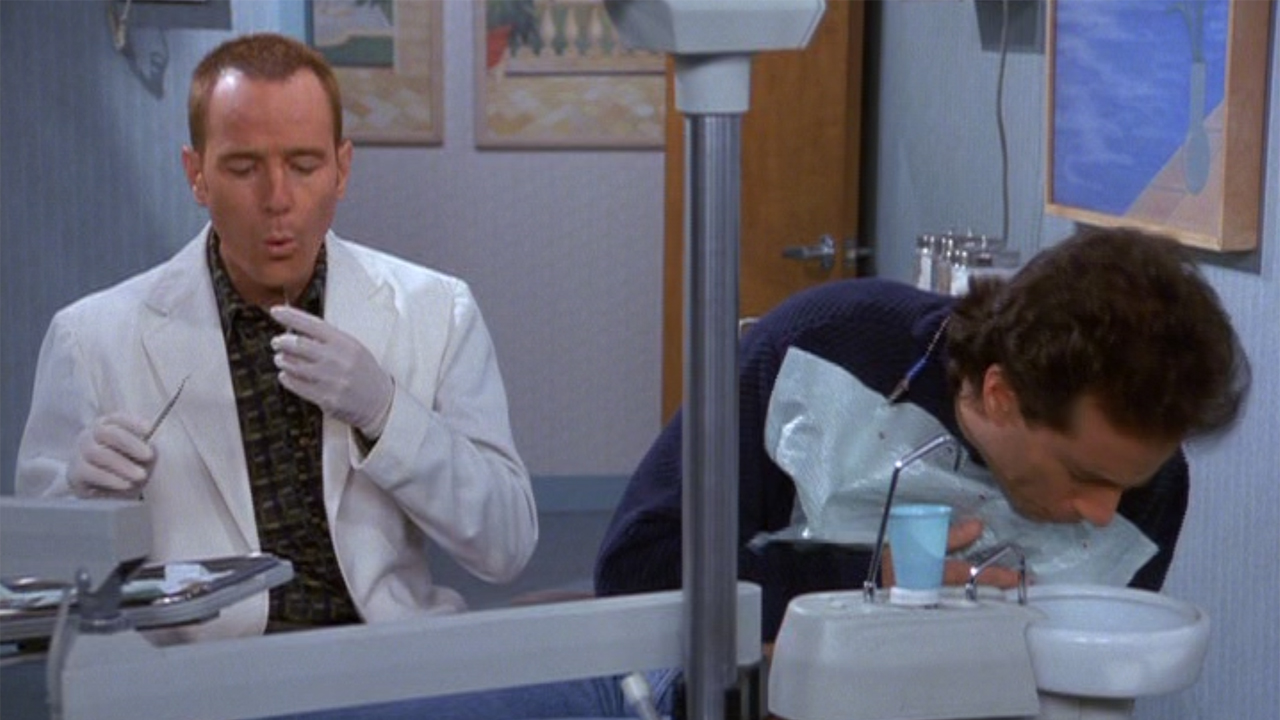
Anti-Dentite
Nobody likes going to the dentist, but there are some people who take their dentist-hate a touch too far. Per Kramer in “The Yada Yada,” Jerry crosses a line when he starts making too many jokes about Dr. Tim Watley despite not being a dentist himself, and that veers him right into Anti-Dentite territory.
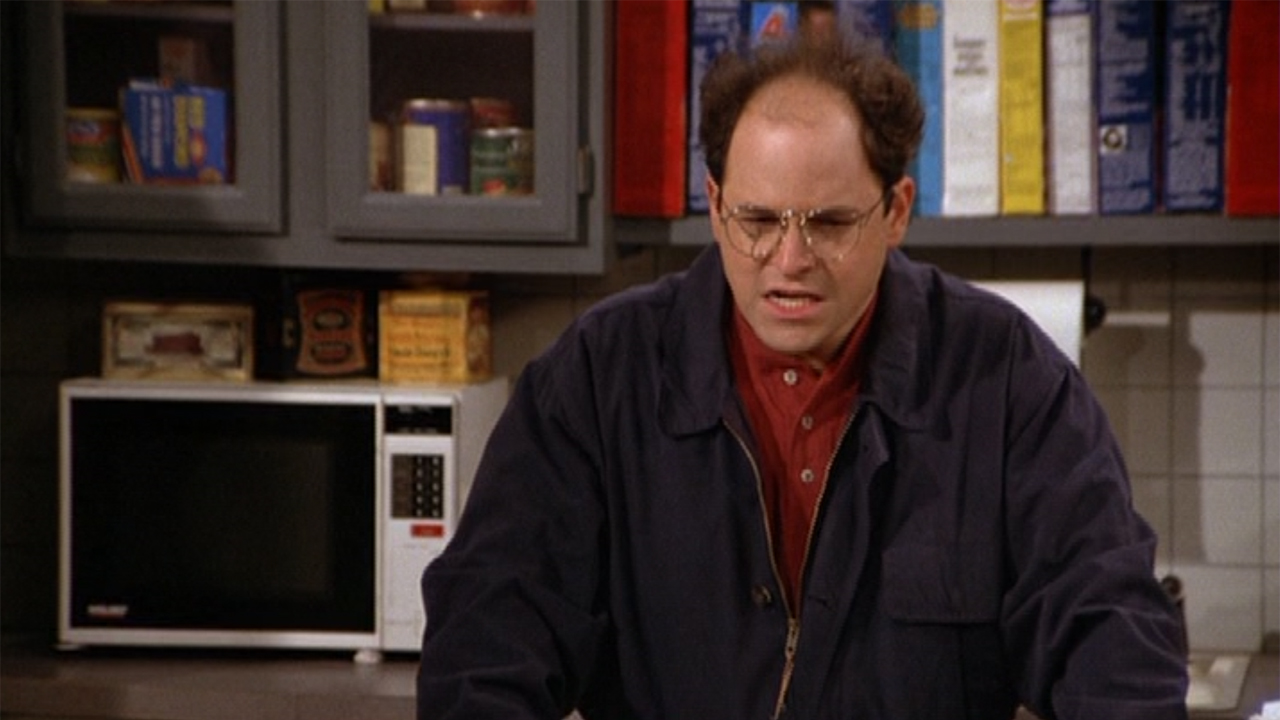
“These Pretzels Are Making Me Thirsty”
Do you ever have one of those moments where you just don’t know what to say – be it because of frustration or awkwardness? You should give “These pretzels are making me thirsty” a shot. It’s meaningless unto itself (particularly if you’re not actually eating pretzels when you say it), but it sure does fill up a silent moment in a conversation.
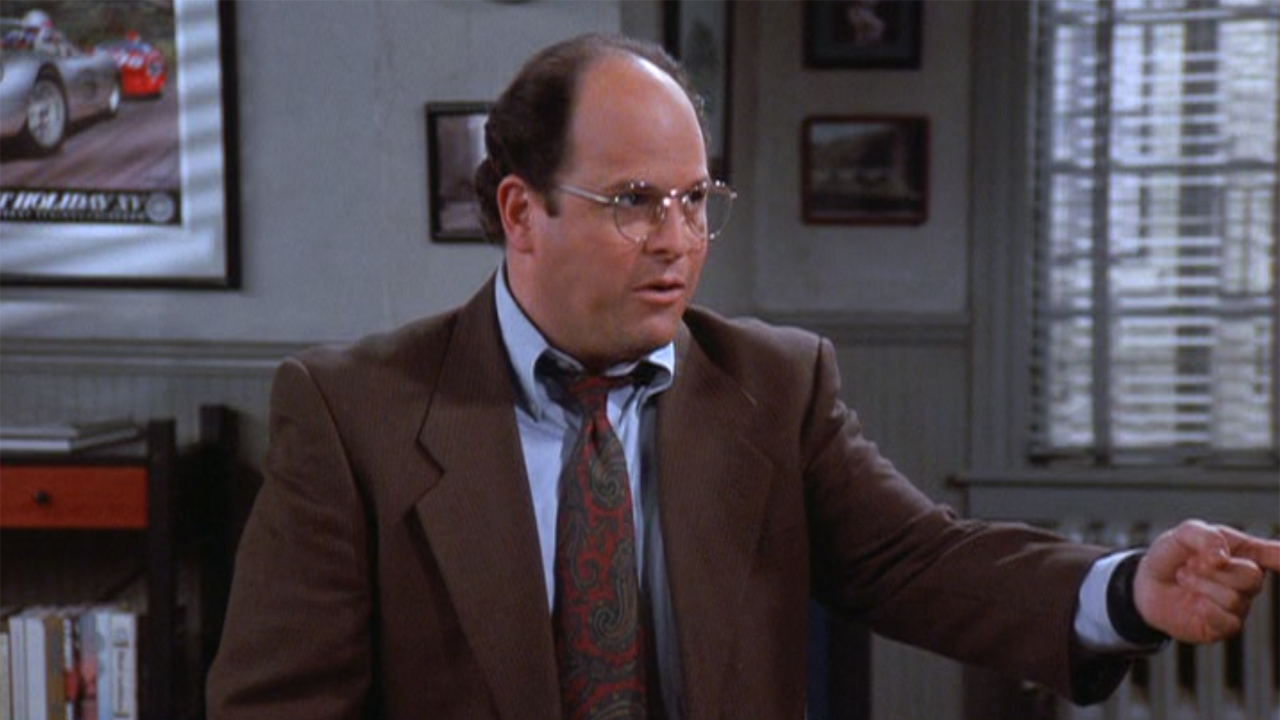
Desour
Grudges are generally not helpful. If someone disappoints you in a minor way, it’s best to try and positively move on from the incident and try to fortify the relationship. If you’re able to do this, congratulations! As George Costanza would say, you have successfully desoured. Now you can get to work on sweetening too.
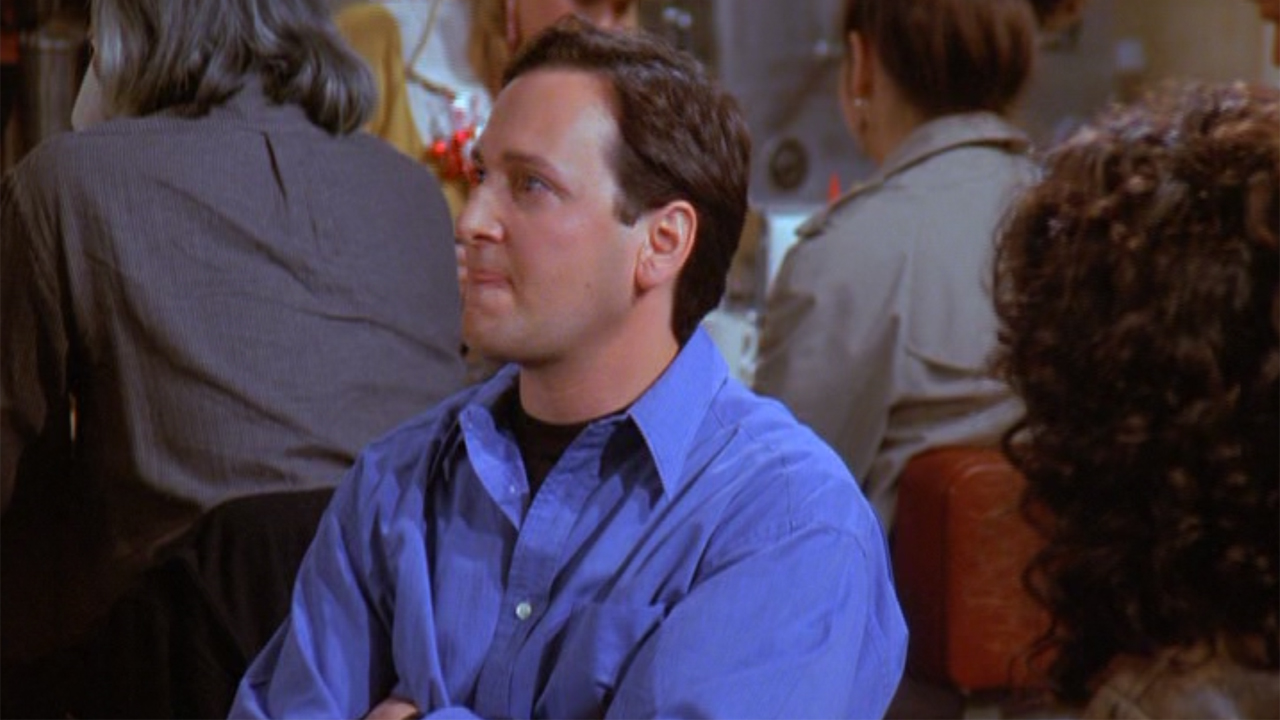
Bad Breaker-Upper
A relationship may end for a variety of different reasons, but there are some people who like to stick a knife (or fork, perhaps) in your side as a goodbye. Elaine encounters one of these individuals in “The Andrea Doria,” and she acknowledges him as a bad breaker upper shortly before they part ways… but that doesn’t mean she can just shake it off when he tells her that she has a big head,
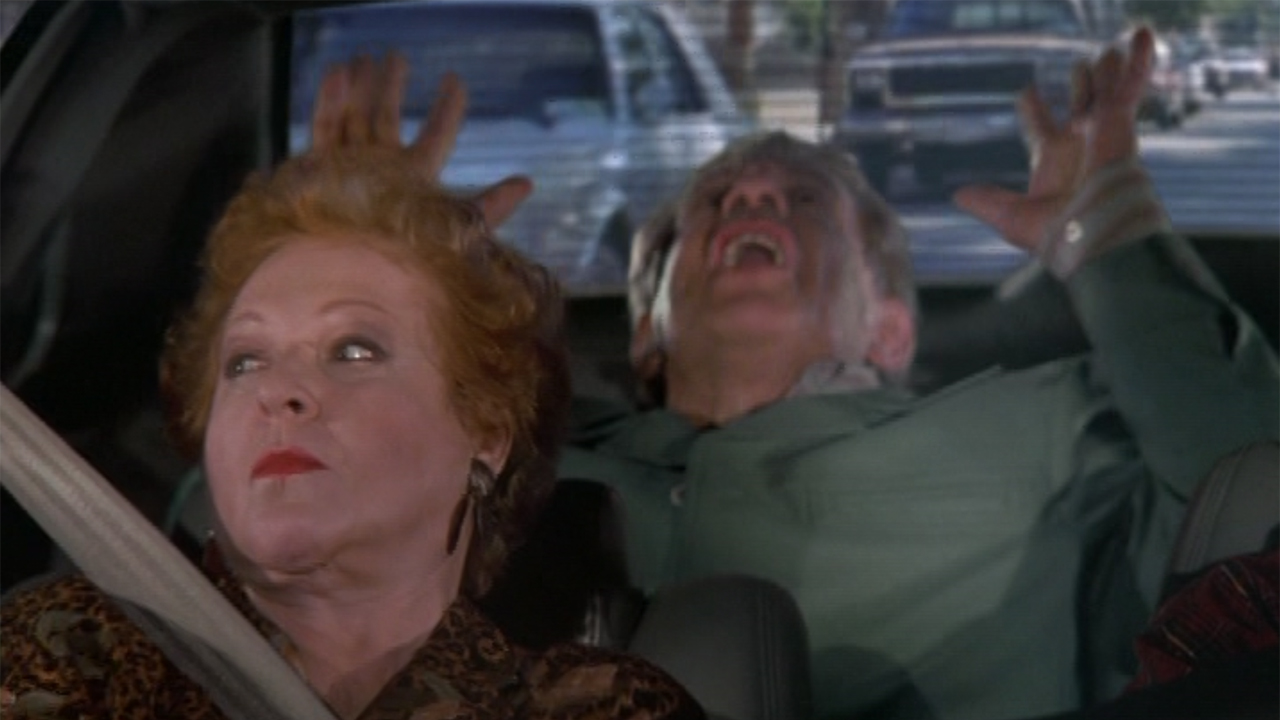
“Serenity Now!”
“Serenity now!” is the verbal equivalent of a stress ball. If you’re feeling overwhelmed with extreme emotion, just use it as a mantra to try and calm yourself down. Be warned, though: if you go too long without properly venting your emotions, as George learns in “The Serenity Now” when Kramer destroys 25 computers the stocky, dimwitted bald man bought from himself as a salesman at his dad’s company.
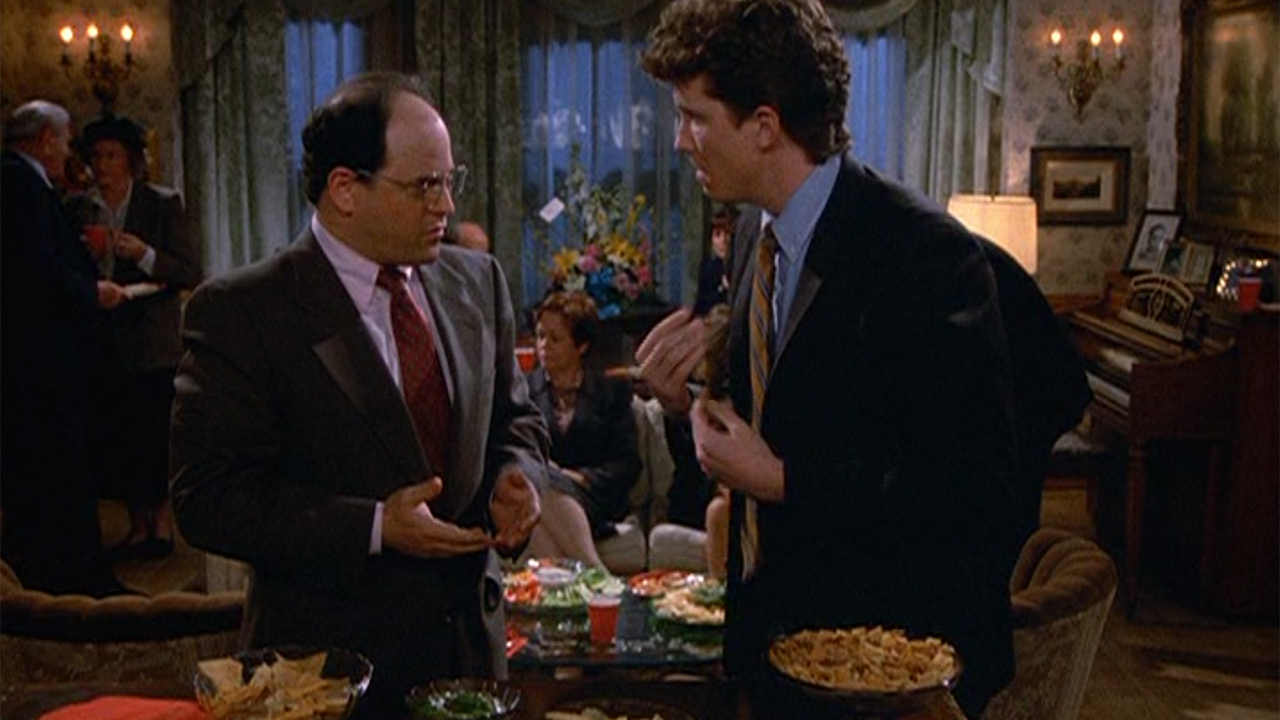
Double Dip
When it comes to crudité and the like at party buffets, people are technically free to dip how they want to dip, but if you don’t want to commit what is generally seen as a major social faux pas, you should consider just taking one dip and ending it. Unfortunately, George Costanza is an unabashed double dipper, and that leads to some serious consequences at a Detroit funeral in “The Implant.”
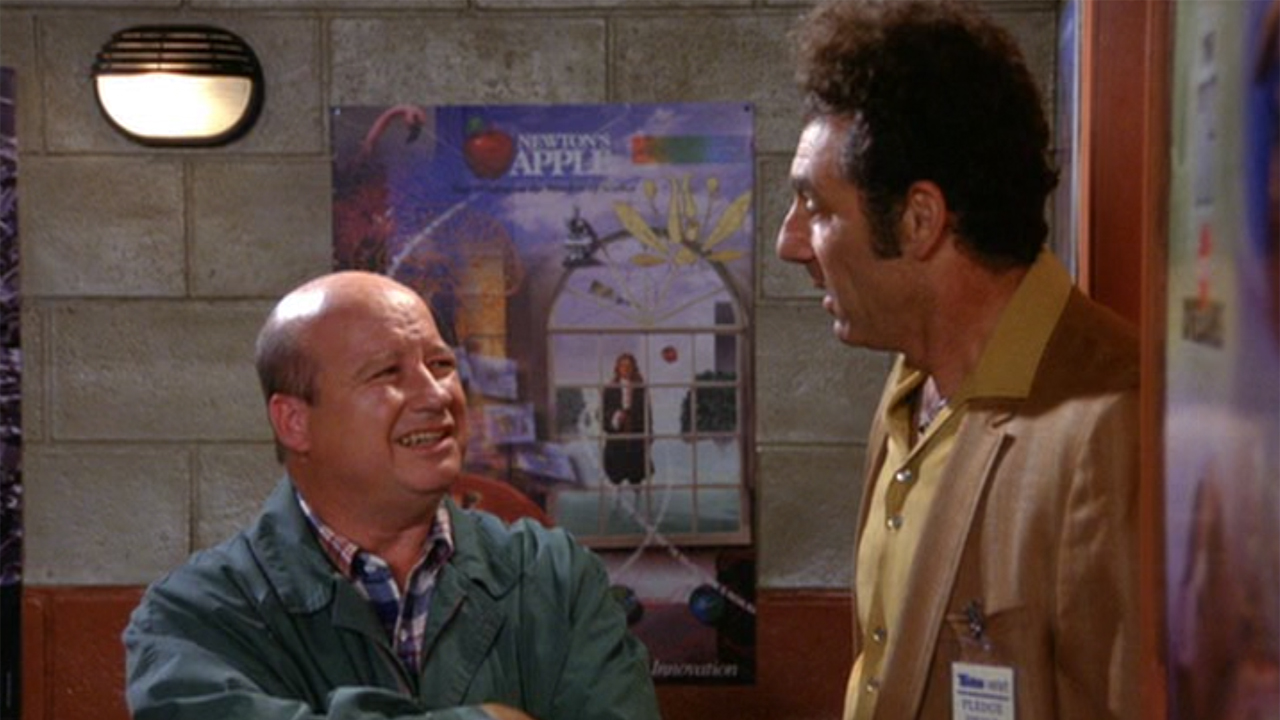
High Talker
If a woman you know is in a relationship with a man with a high voice, a.k.a. a High Talker, it’s best to be careful when talking on the phone. As seen in “The Pledge Drive,” identities can easily be confused and it can lead to some highly messy circumstances.
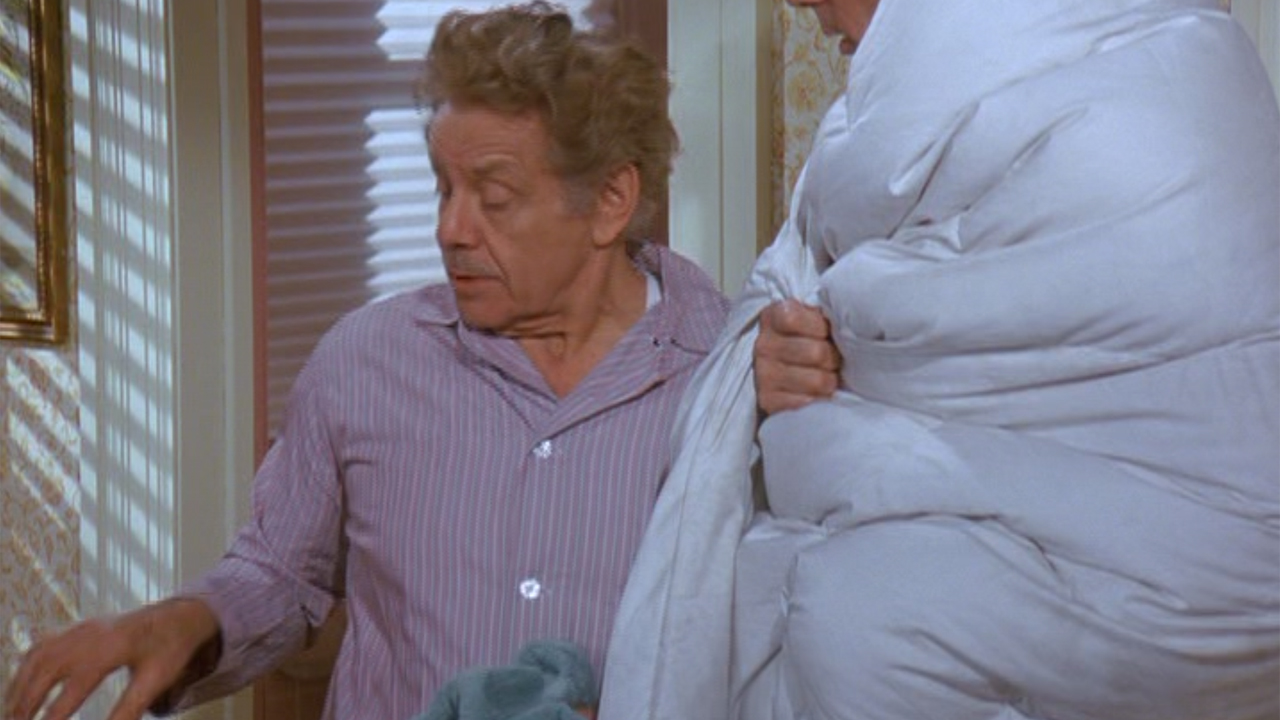
Jimmy-Leg/Arms
We now know it generally as Restless Leg Syndrome, but back in the 1990s, Seinfeld summed up the behavior brilliantly as having “the Jimmy-Leg.” In “The Money,” Kramer’s girlfriend (played by Sarah Silverman) is a chaotic sleeper, and when the Hipster Doofus goes to Frank Constanza for advice, he reveals that Estelle Costanza has the same condition in her arms (a.k.a. “the Jimmy-Arms”).
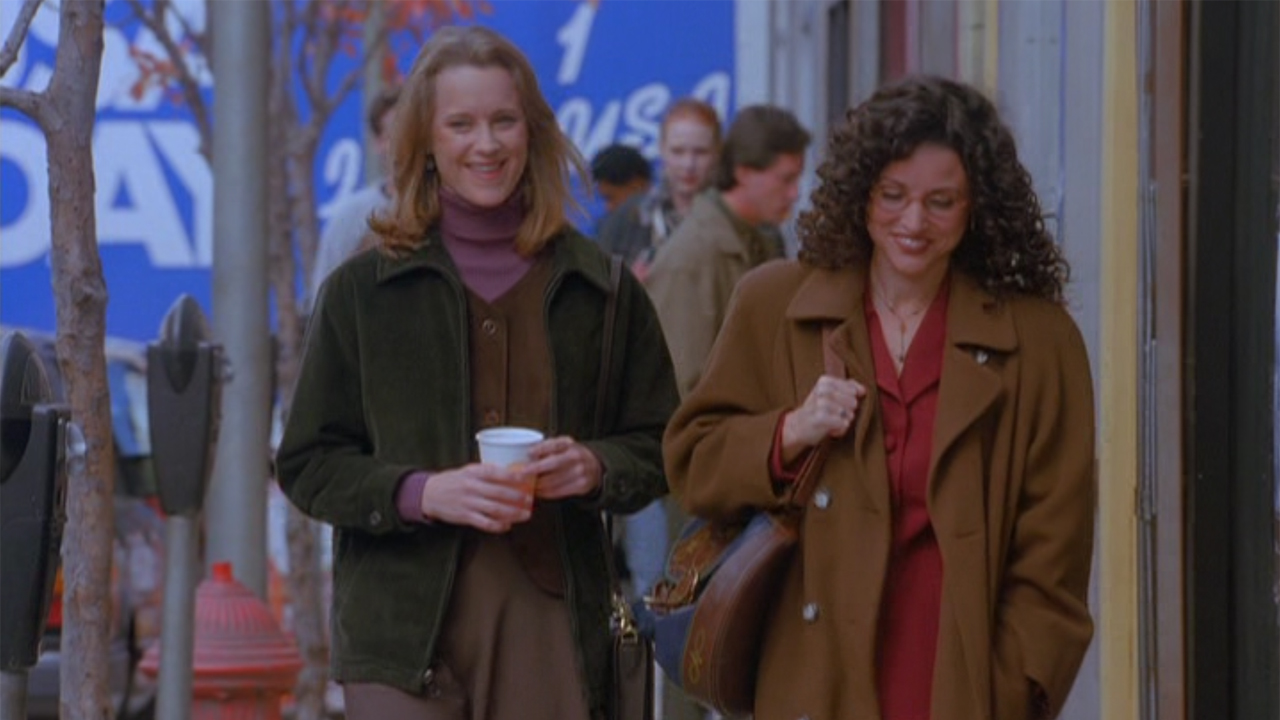
In The Vault
If you want to assure a friend that a secret is safe with you, all you have to do is tell them that it’s “in the vault,” and, barring your reputation, it should earn confidence. Be warned that this promise means a lot less if a lot of people “know the key” (in the case of Elaine, it’s peppermint schnapps).
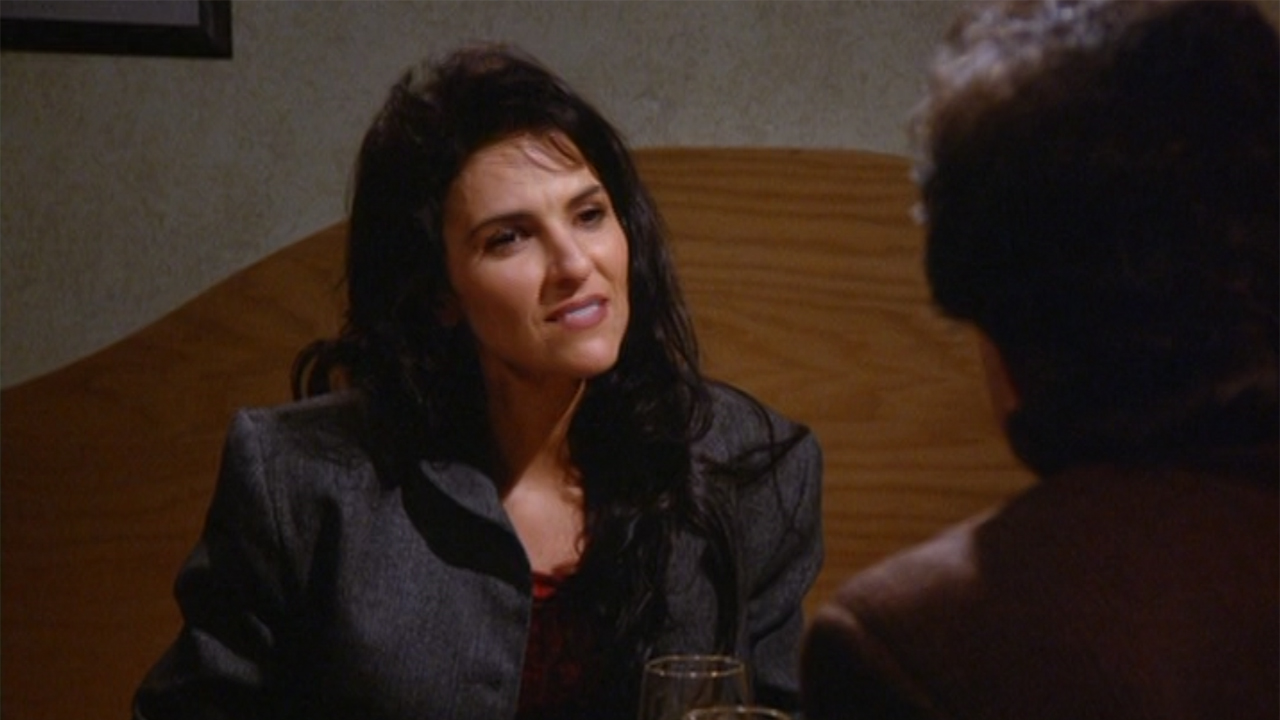
Non-Laugher
A person who doesn’t find jokes funny is a person without a sense of humor… but that’s not the same thing as a non-laugher. A non-laugher will find enjoyment in a joke or gag, but instead of laughing, they will instead lean on a phrase like, “That’s funny.” As Jerry discovers in “The Switch,” this kind of individual is not an ideal match for a comedian.
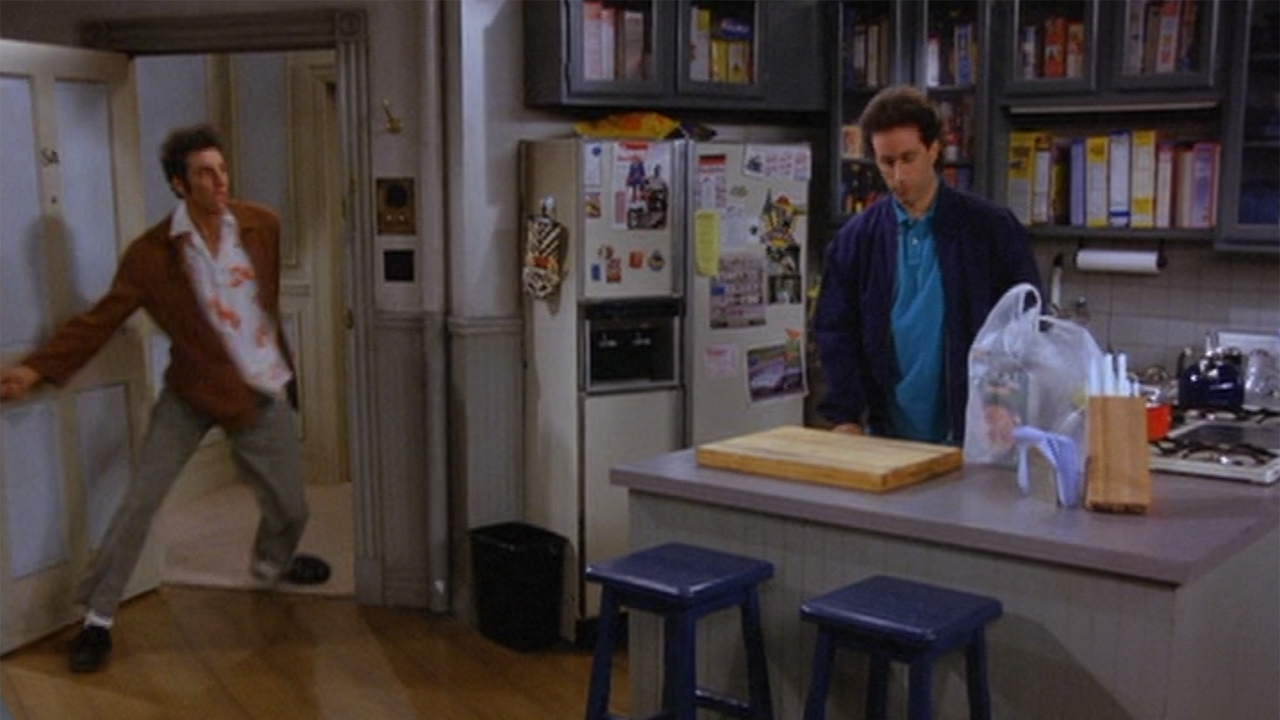
Pop-In
One of the greatest demonstrations of the tight-knit relationship between the four principal characters in Seinfeld is their devotion to the pop-in – particularly when it comes to Jerry’s apartment. When Kramer, George, or Elaine want to see Jerry, they only very rarely call to announce their imminent arrival; instead, they prefer to just show up on a whim at apartment 5A at 129 West 81st Street.

Yada Yada Yada
Before TL;DR, there was “yada yada yada.” Does your story have a bunch of extraneous details that don’t add to what you and a friend are talking about? “Yada yada yada” is the perfect conversation shortcut. That being said, you should be aware that overuse of it may convince others that you are hiding something.
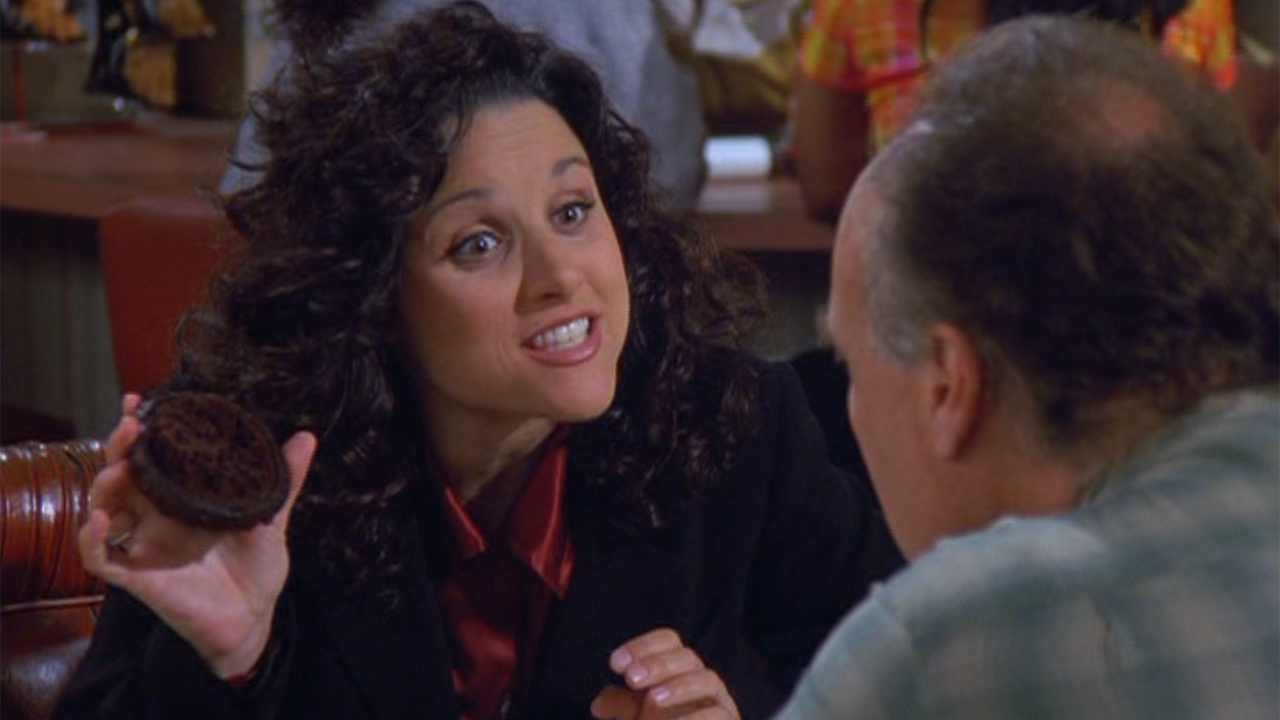
Muffin Top
Muffins are delicious, but not all sections of a muffin are equal. The stumps are tasty, but the real flavor center of the pastry is where, in Elaine’s words, the “muffin breaks free of the pan and sort of does its own thing.”
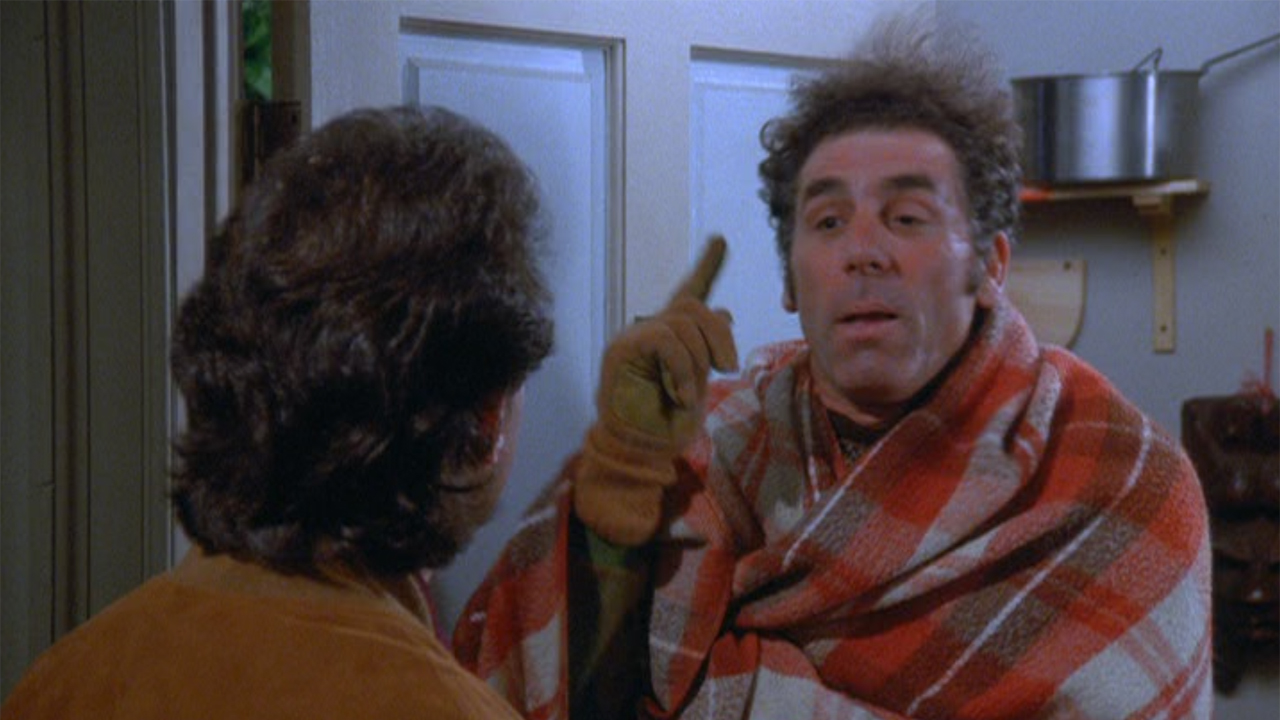
Mental Alarm
Alarm clocks can be obtrusive devices that start a day on a negative note, so it’s easy to be envious of people like Cosmo Kramer who can simply set a mental alarm: they think about what time they want to wake up, and their body does the rest. Note: due to the existence of a mental snooze button, these individuals should not be trusted to wake you up for important events (like getting a marathon runner to a race on time).

Picker
Any elementary school student can tell you that picking your nose is uncouth behavior – and yet there are pickers out there who do it flagrantly and in public. A warning to those who practice their behavior: if seen by the wrong person, it may cost you a romantic relationship.

Re-Gifting
Sometimes a friend or acquaintance gives you a gift that you have no use for, but it always seems wasteful to throw out something that is brand new. Re-gifting, from a certain angle, is similar to recycling in the present-giving world… but it’s definitely best to not get caught doing it, and that means not re-gifting to people who are in the same social circle. Dr. Time Whatley learns this lesson the hard way in “The Label Maker.”
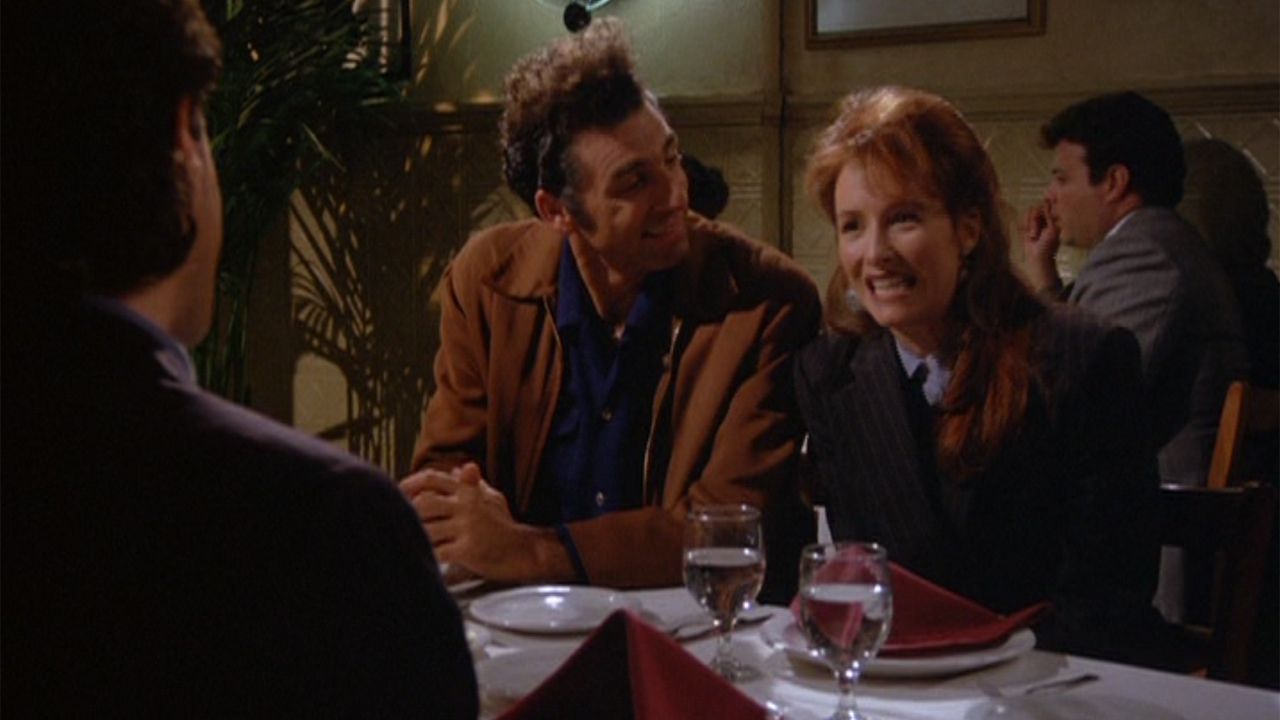
Low Talker
Here is a warning to all the Low Talkers out there: if people don’t understand what you are saying, misunderstandings are bound to arise, and from those misunderstandings can come serious problems. For example, you may end up losing your career as a clothing designer because you accidentally lock a comedian into wearing your clothes on television and viciously embarrassing him (See: “The Puffy Shirt”)
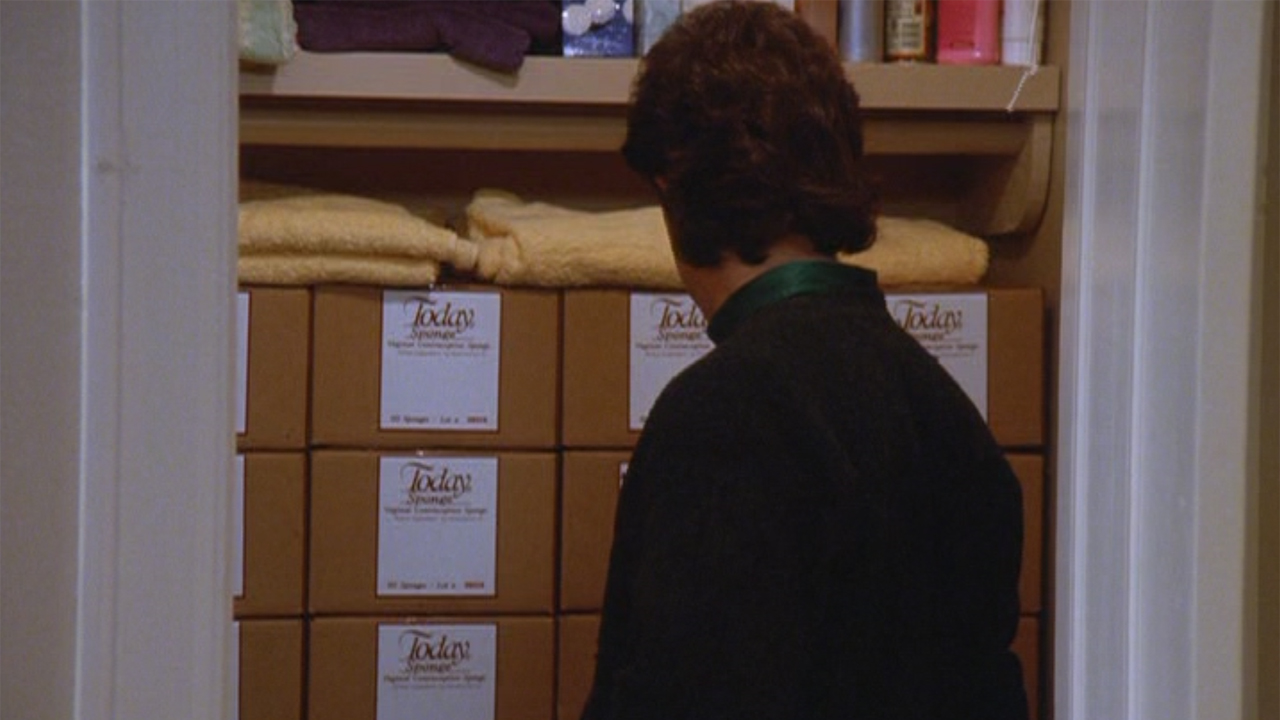
Spongeworthy
If contraceptives are in short supply, sexual standards must be adjusted. Will the enjoyment that can come with sleeping with someone be worth the risk of potentially not sleeping with someone better? If the answer to that question is, “yes,” then that person is deemed, in Seinfeld parlance, to be Spongeworthy.
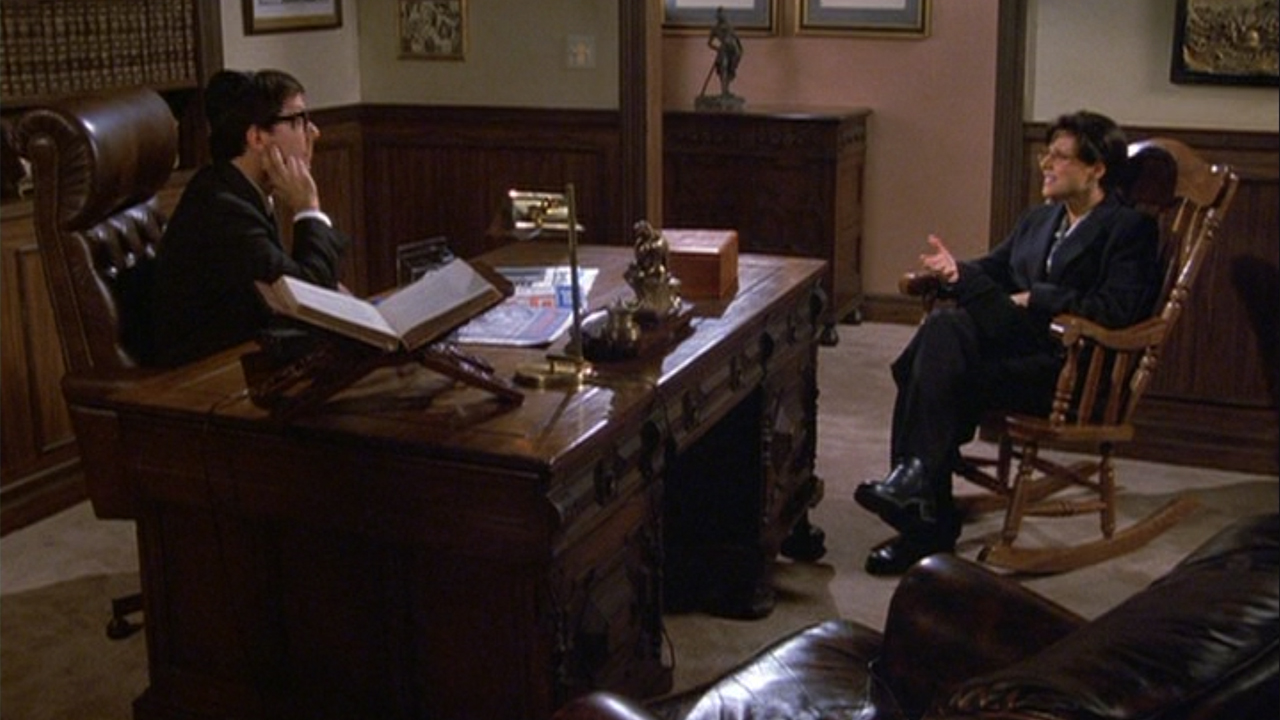
Shiksappeal
Per Seinfeld, shiksappeal is akin to an anti-Oedipal complex for Jewish men. Instead of having an attraction to women like their own mother, they are instead attracted to the opposite, such as a shiksa (Yiddish for a non-Jewish woman). In correlation, a non-Jewish woman who attracts Jewish men is said to have shiksappeal.
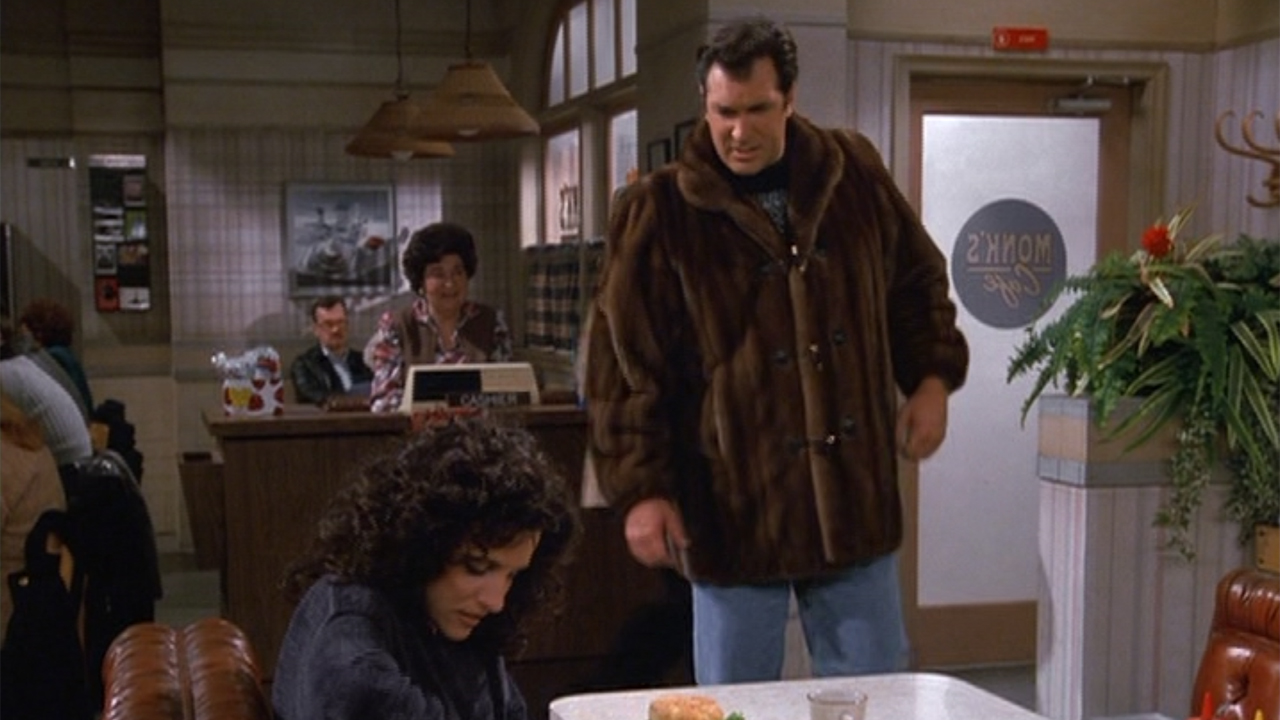
Man Fur
Putting aside the controversial nature of the sartorial practice, wearing fur is generally done by women in our society… but Seinfeld shows us that there are men out there with the audacity to wear a Man Fur. Elaine is utterly embarrassed when David Puddy begins to rock one in the episode “The Reverse Peephole,” and when she defenestrates the fuzzy jacket at a party, she finds herself facing a weird consequence: David takes the jacket belonging to the party’s host, Joe Mayo, and then she has to pay to replace it.
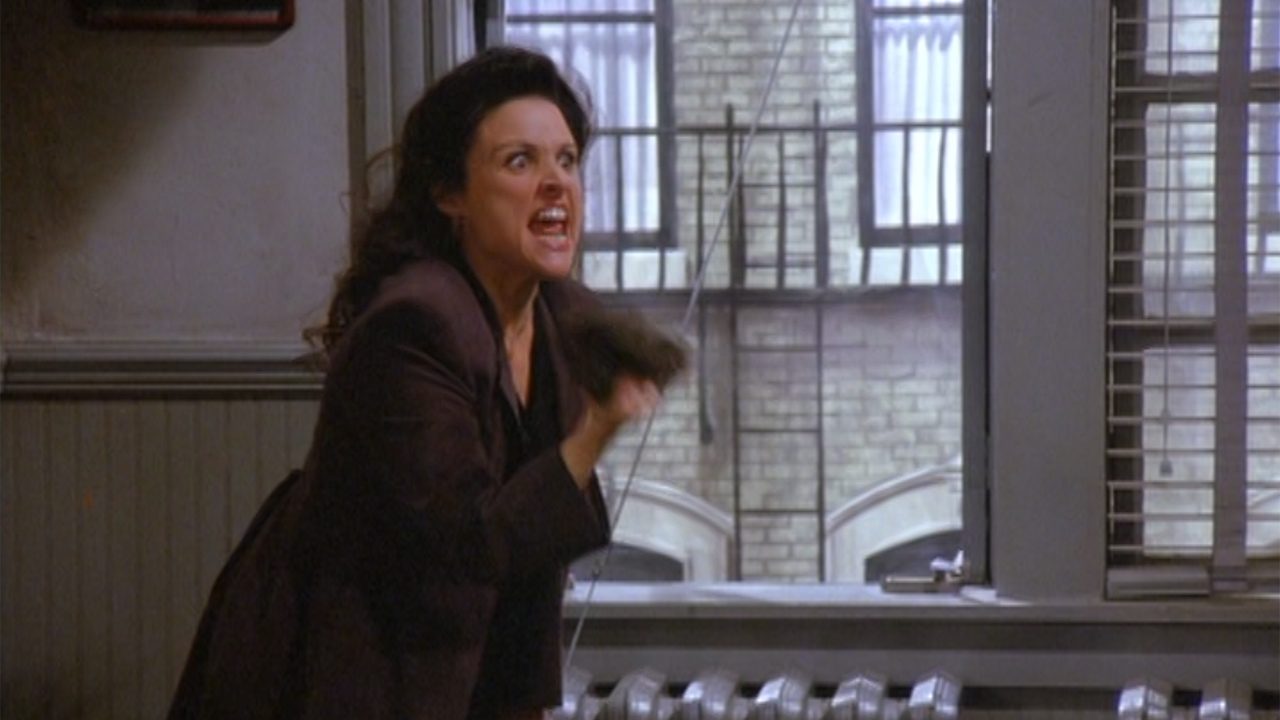
Baldist
Is Elaine Benes a baldist? That’s an accusation that Jerry levels at his best female friend in “The Beard” when he learns that she has never dated a bald man. It’s an open question whether or not she has a prejudice, but she definitely doesn’t like toupees, as she makes a show of throwing George’s out of a window.
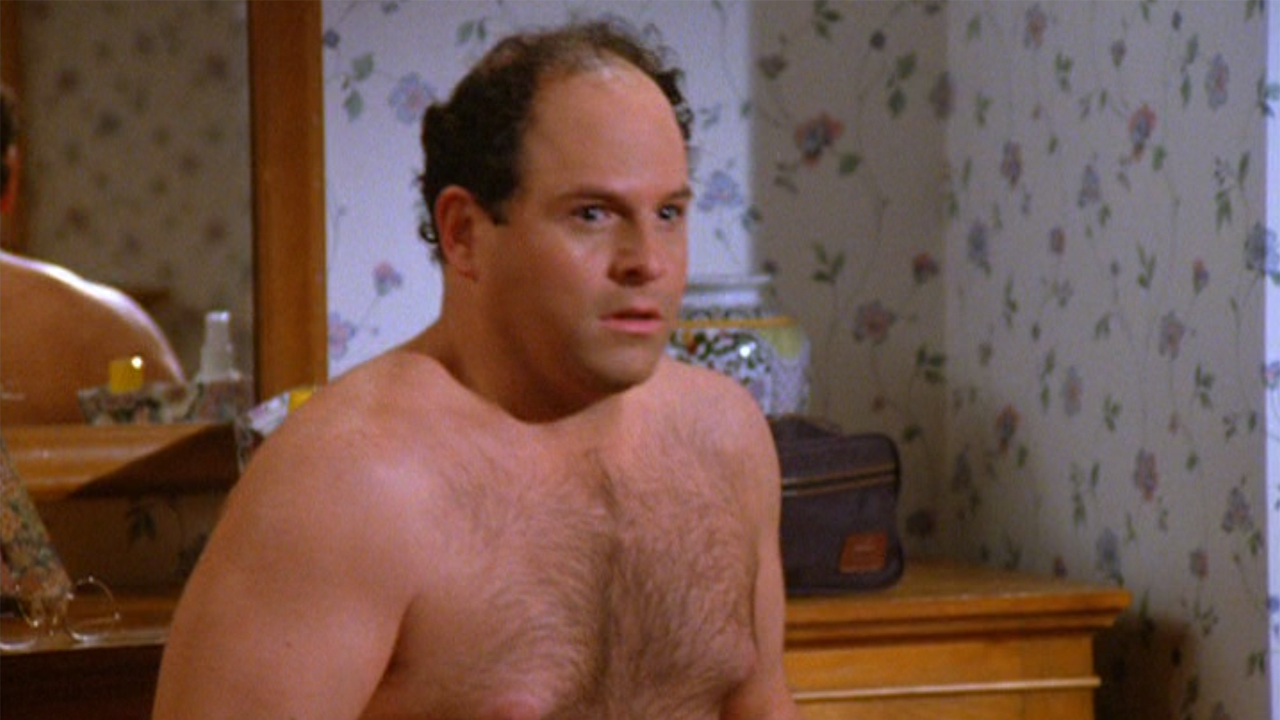
Shrinkage
Thanks to Seinfeld, men no longer need to feel self-conscious when exiting a cold pool. The beloved NBC sitcom let the world know about the existence of “shrinkage,” though the sacrifice was one George Costanza's relationship in “The Hamptons.”
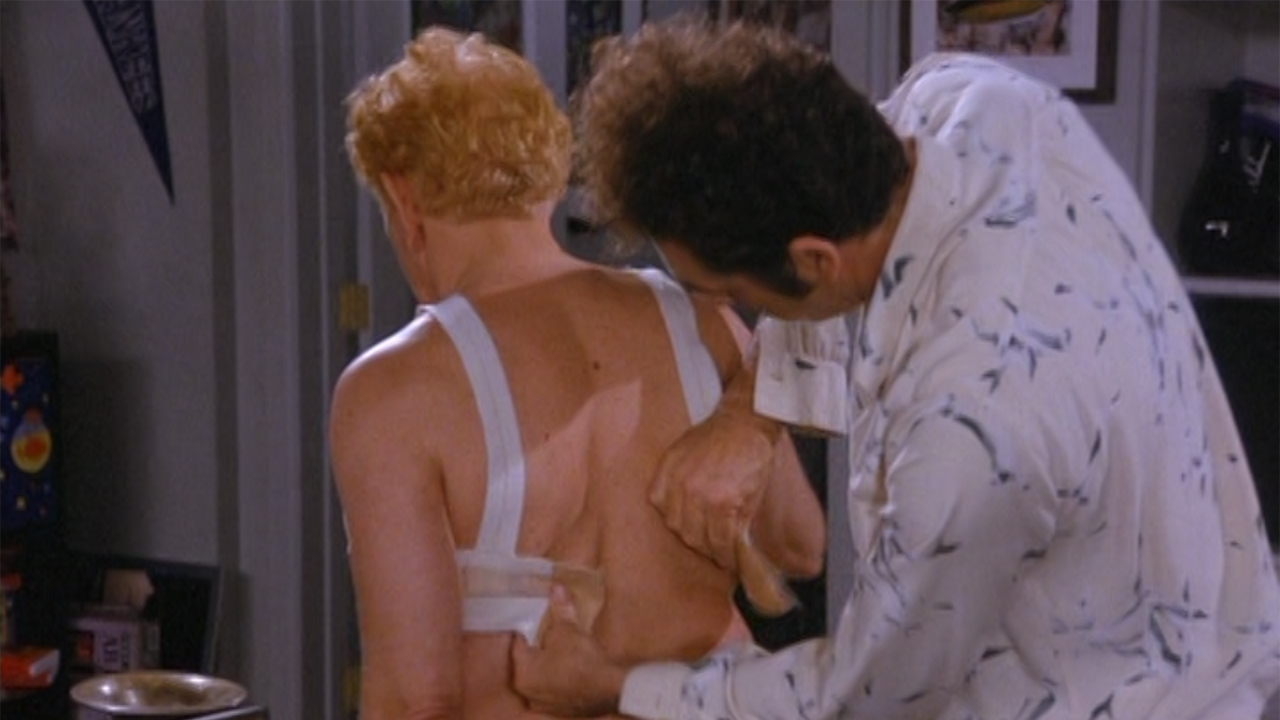
Bro/Manssiere
At an advanced age, men can get a bit… heavy upstairs, but that’s where the bro/manssiere is useful. Kramer and Frank Costanza can’t agree on what to call their invention, but it’s a support undergarment designed specifically for men, and it notable features Velcro in the back instead of hooks like a woman’s bra (though this is a feature that Morty Seinfeld would certainly hate).
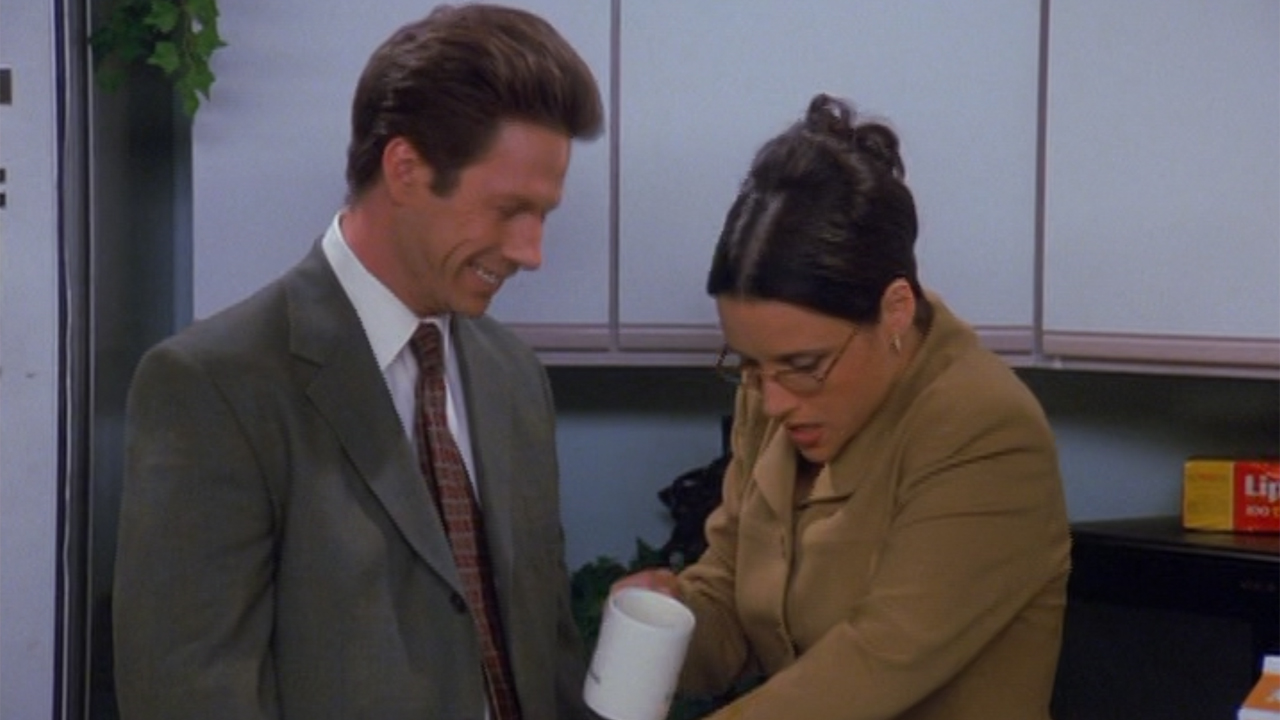
Sidler
While some people stomp around like a Clydesdale, others, like J. Peterman employee Lou Filerman in “The Merv Griffin Show” can sneak around and sidle up on you. These sidlers are tricky to deal with, as they can not only steal credit for your work, but leave you holding the bag when you’re getting chewed out by your boss.

Two-Face
Ask any cinematographer: lighting is extremely important. With the wrong kind of shadows cascading, a beautiful person can look all kinds of ugly – hence the nickname Two-Face (yes, like the Batman villain, if that helps). Unlike Jerry in “The Strike,” it’s best not to just constantly bring them to the same place where you know they’re always going to look good.
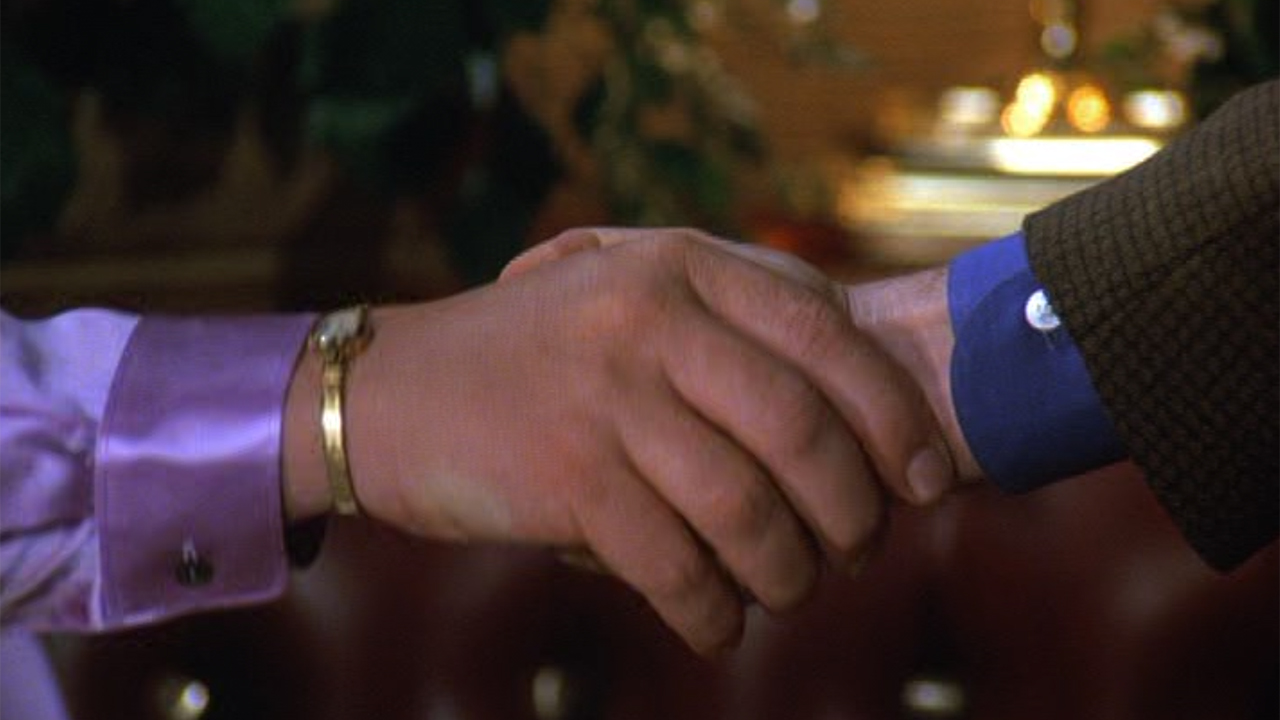
Man Hands
“Like a creature out of Greek mythology”: Man Hands is the nickname that Jerry gives to Gillian, a woman he’s seeing after a setup orchestrated by Elaine in “The Bizarro Jerry.” She is gorgeous, but the series’ titular character can’t get over the fact that she has large, strong, and off-putting hands.
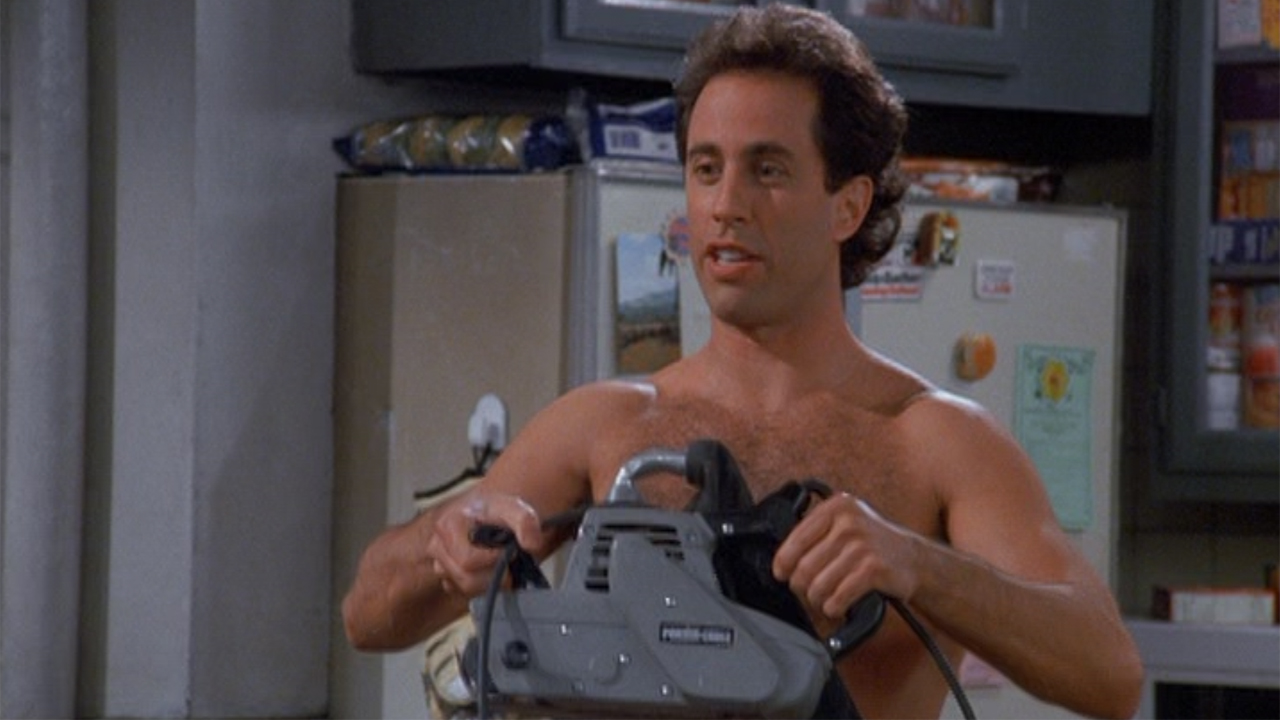
Good Naked/Bad Naked
The human body is a beautiful thing… sometimes. While people can look great prancing and posing in the nude, there are some positions we take that just look ugly regardless of your body shape. It’s the difference between good naked and bad naked, and it’s all well spelled out in Season 9’s “The Apology.”

Eric Eisenberg is the Assistant Managing Editor at CinemaBlend. After graduating Boston University and earning a bachelor’s degree in journalism, he took a part-time job as a staff writer for CinemaBlend, and after six months was offered the opportunity to move to Los Angeles and take on a newly created West Coast Editor position. Over a decade later, he's continuing to advance his interests and expertise. In addition to conducting filmmaker interviews and contributing to the news and feature content of the site, Eric also oversees the Movie Reviews section, writes the the weekend box office report (published Sundays), and is the site's resident Stephen King expert. He has two King-related columns.





